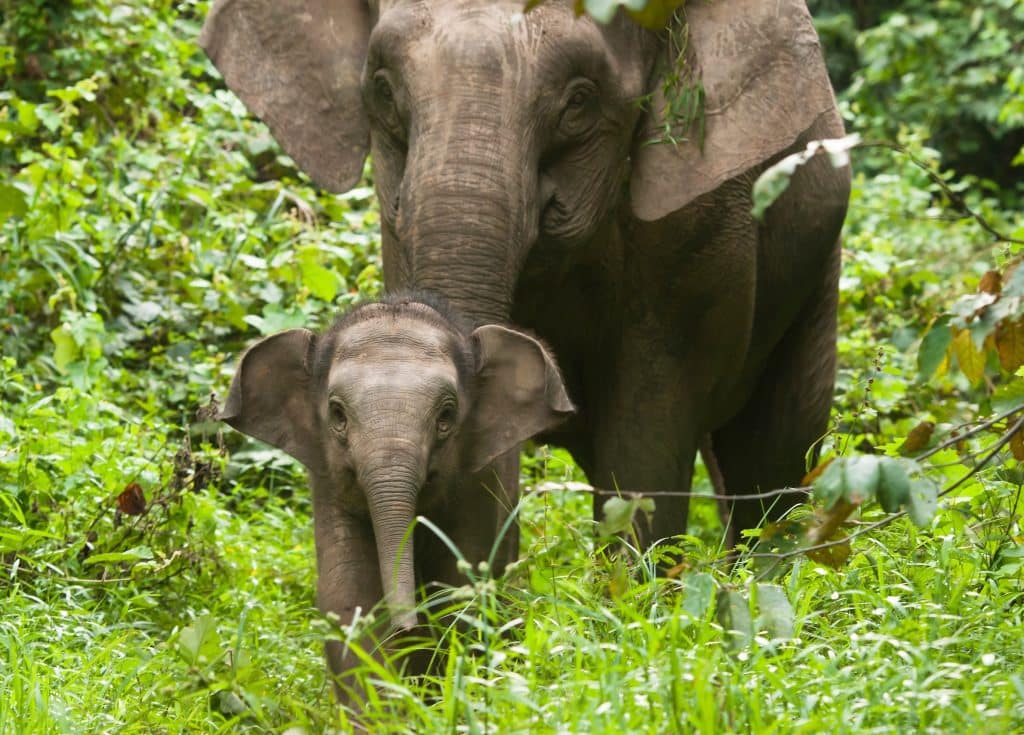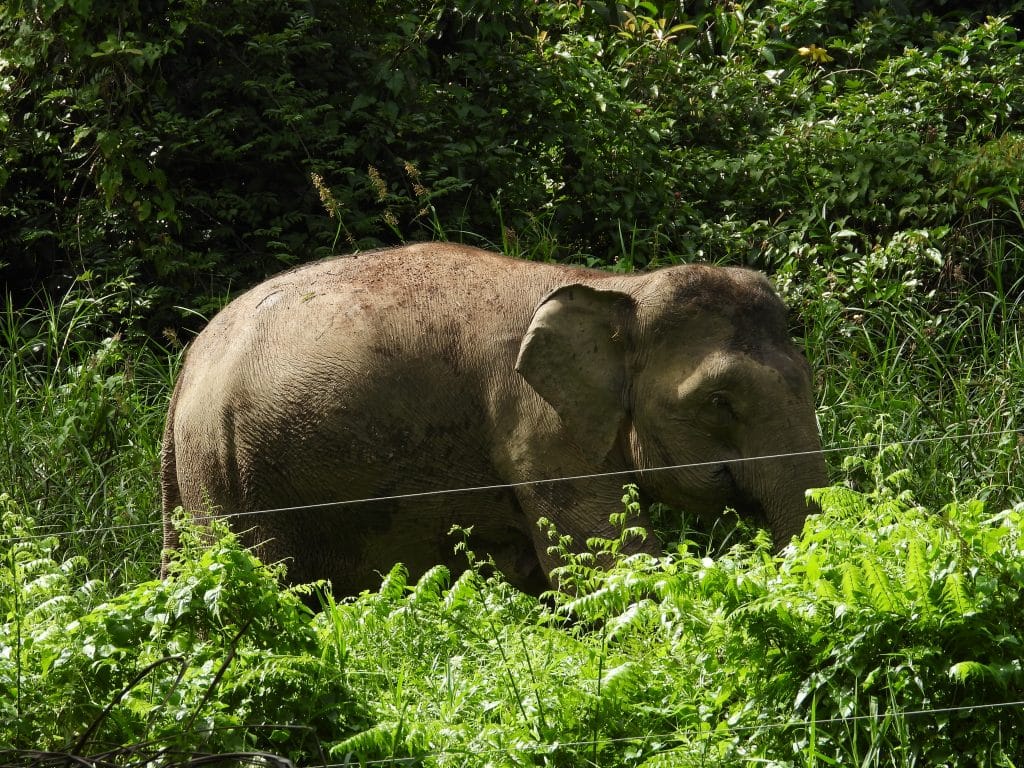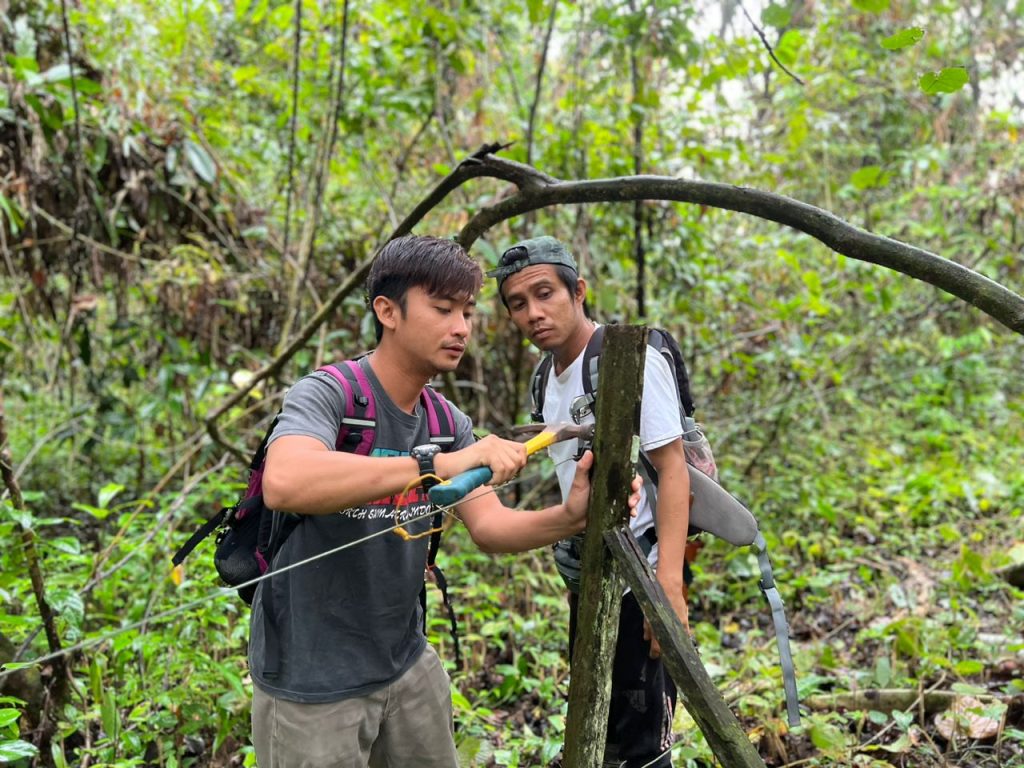The sun sank beneath the tree line as a trio barely in their twenties stood outside the low-voltage electric fence surrounding their village. As their flashlight beams reached into the darkening brush, they heard the snapping of branches and thudding footsteps of the approaching herd. They asked the villagers behind the fence to move back as they readied to open the gate and allow the elephants to pass. These members of Seratu Aatai’s Community Honorary Wildlife Wardens program keep the peace between communities and the Bornean elephants that must carefully cross through human settlements to traverse their habitat.
Approximately 1,500 Bornean elephants remain in Malaysian Borneo, with about 250 living in the fragmented forest of the Lower Kinabatangan region. They are genetically distinct from and typically smaller than the elephants of mainland Asia, but that doesn’t prevent local people from being intimidated by their size. Since most of Lower Kinabatangan’s forest has been lost to human settlements and palm oil plantations, the elephants can’t help but come into contact with people as they forage and migrate. This can lead to raided crops and damaged property, creating conflict between people and elephants.
Seratu Aatai, one of the latest additions to WCN’s Partner Network, created their warden program so that young people from villages regularly visited by elephants can act as ambassadors who prevent conflict and promote coexistence. Seratu Aatai tracks elephants via GPS collars and alerts wardens when those elephants are seen moving toward villages, allowing the wardens to intercept and divert the herds. Wardens spend a lot of time teaching landowners how to prepare for and calmly de-escalate encounters with their giant neighbors. Erecting fences around the villages is one mitigation method, but to ensure that the elephants can still roam what’s left of their forest, wardens operate spring gates in the fences so the elephants can pass through villages on deliberate pathways without causing any damage. They’re very careful not to be too aggressive or make the elephants anxious, otherwise that can cause the herd to stay longer.
Later this year, Seratu Aatai will expand this effective program into Central Sabah, a massive forest region where the largest Bornean elephant population—1,000 individuals—is found. This region is much larger and more rural than Lower Kinabatangan, and the elephant population here comes across people far less frequently. So while conflict incidents may be fewer, they may also be more delicate. Seratu Aatai is recruiting up to 15 new wardens to pilot this program in Central Sabah so that the people living and working there will be prepared for eventual elephant encounters.
Such encounters have become common for the young trio of wardens, who patiently held the gate open for the elephants to pass. Although they knew a long night lay ahead of them, lack of sleep was a fair price for keeping peace between the village and the herd. Seratu Aatai and their wardens are sparing no effort to build trust with communities and continue encouraging safer interactions between them and Bornean elephants.





